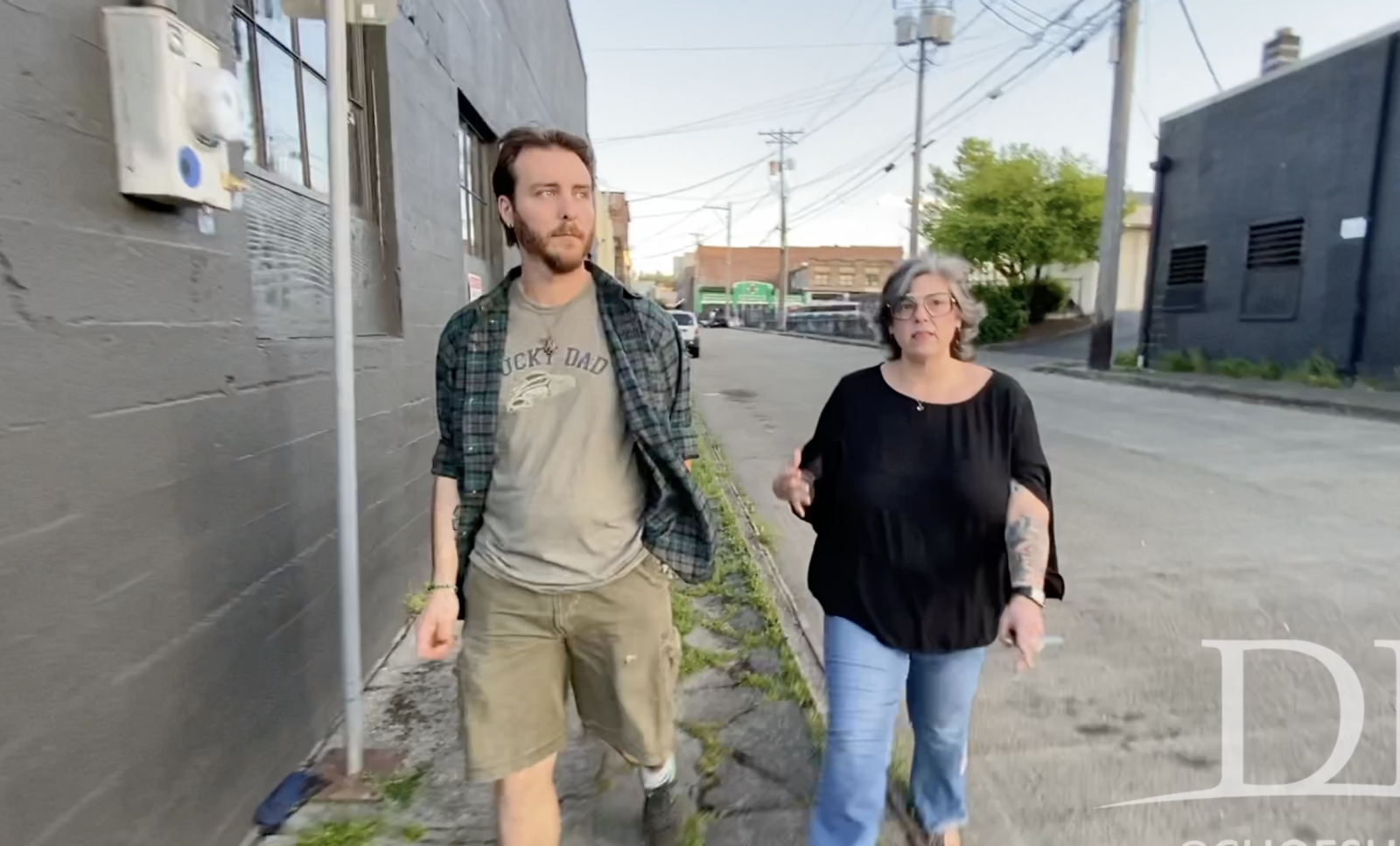When Blake Mara and her business partner, Brian Cheeseman, started Heritage Coffee and Plant House in Tacoma’s Dome District last summer, they wanted their unique concept to become a destination for local artists and a community gathering place.
Mara says she “saw the potential of the local neighborhood,” and Cheeseman adds he wanted to make the area “better for our whole community, not just us.”
Like any new business, Mara and Cheeseman knew there was financial risk involved. Mara says she invested everything she owned in Heritage, but “had absolutely no idea how bad it was going to be.”
Mara and Cheeseman could never have prepared for the homelessness crisis spiraling out of control at their doorstep.
They tell me about the drug use surrounding their shop and Mara tells me she’s “had to remove somebody who was shooting up” in their bathroom and clean human feces off the street.
“The impact on our business has been substantial,” she says.
A homeless encampment under the highway nearby comes and goes in waves, and with it, criminal activity. “I don’t want them to steal our stuff,” remarks Cheeseman.
Frustrated business owners say the encampment is responsible for the recent uptick in open air drug use, mental health crises, and alleged sex trafficking in the area.
Mara emphasizes that “there’s a big difference between our houseless community and our criminally homeless.”
After two weeks of growth at the encampment, the city finally moved in and cleared it. But Mara and Cheeseman want to know what’s being done to keep the homeless from moving back.
“I’m not entirely sure who’s supposed to be handling this,” Mara tells me. She explains that the encampment resolution gets bounced around between Tacoma Police, a 311-support line, and the city.
Tacoma passed an ordinance last year banning public camping within ten blocks of a temporary shelter, and a city spokesperson tells me that enforcement is happening consistently, crews are working on replacing fencing to keep people out, and outreach workers are offering services and shelter options.
But many living in the encampment refuse offers of shelter and simply move down the block to set up another encampment. “You don’t have to, like, answer to nobody out here,” says a man living in the encampment.
Valerie Tony, who lives in the encampment, says she wants to get off the streets, because “it’s not safe.” But she says the options being offered are limited: “I’ve tried many programs and they fail us.”
A homeless man who goes by “Sin” tells me this homeless community is “bouncing back and forth between this bridge and the other one.” He says he’ll take his chances moving around until something better becomes available.
Encampment resident Wayne says most of the homeless understand the frustrations of neighbors and business owners. “We don’t like it any more than any of you — trust me,” he says.
Wayne says the homeless are trying to coexist with the rest of the community, but “there’s a handful of situations that we can’t control.”
“The most frustrating part is that I have a very, very strong desire to help these people because I’ve been homeless myself,” Cheeseman explains to me. Mara has personal experience with homelessness too. “I lived in my car in order to get this up and going,” she says.
Aside from their passion for plants and coffee, Mara and Cheeseman also provide hygiene kits, food, and blankets to the homeless.
As for Heritage Coffee and Plant House, they both say there’s no other option but to keep going and make it.
“This is my home,” Cheeseman says, “I was born here, I’m not going anywhere.”

